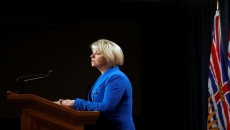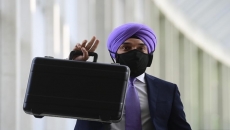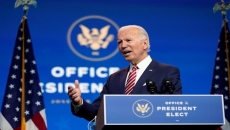TransLink is moving to a second round of engagement for the proposed Burnaby Mountain Gondola. Incorporating feedback from the first round of public and stakeholder engagement, TransLink undertook an evaluation of three proposed routes based on project benefits, costs, and implementation considerations.
This round of engagement seeks public feedback on the evaluation and level of support for each of the three proposed routes, which will ultimately lead to a single preferred route.
TransLink will share the engagement results and a technical assessment with the City of Burnaby, the TransLink Board and Mayors’ Council. The Burnaby Mountain Gondola would provide fast, frequent, and reliable service between the SkyTrain and Burnaby Mountain. This engagement process will form part of the project’s overall business plan, which is required for any funding or approval.
Route options:
Route 1 is a straight-line route from Production Way–University SkyTrain Station to SFU Burnaby campus.
Route 2 is the eastern route from Production Way–University SkyTrain Station with the gondola travelling along Gaglardi Way, changing direction at an angle station, and continuing to SFU Burnaby campus with the terminal near the bus exchange.
Route 3 is the western route from Lake City Way SkyTrain Station to SFU Burnaby campus, which would cross the Burnaby Mountain Golf Course, change direction at an angle station, and continue to SFU Burnaby Campus with the terminal located south of South Campus Road.
“With more than 13,000 responses in our first round of engagement, we have a good sense of what the public values about the proposed gondola,” said Project Director Jeffrey Busby. “We used that feedback in our design considerations and extensive evaluation of the routes, assessing what matters to local neighbourhoods and the broader public in Metro Vancouver, and we’re ready to share that next level of work.”
Public engagement is a key component of rapid transit planning. This round of online engagement will run from November 23 to December 14, 2020.
Photo courtesy of iStock.






